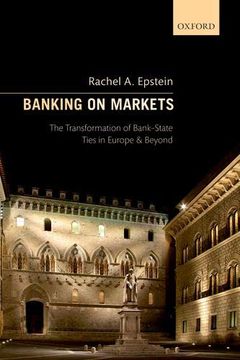Banking on Markets: The Transformation of Bank-State Ties in Europe and Beyond (in English)
Synopsis "Banking on Markets: The Transformation of Bank-State Ties in Europe and Beyond (in English)"
States and banks have traditionally maintained close ties. At various points in time, states have used banks to manage their economies and soak up government debt, while banks enjoyed regulatory forbearance, restricted competition, and implicit or explicit guarantees from their home markets. The political foundations of banks have thus been powerful and enduring, with actors on both sides of the aisle reluctant to sever relations. The central argument of this book, however, is that in the world's largest integrated market, Europe, the traditional political ties between states and banks have been transformed. Specifically, through a combination of post-communist transition, monetary union, and economic crisis, states in Europe no longer wield preponderant influence over their banks. Banking on Markets explains why we have witnessed the radical denationalization of this politically vital sector, as well as the consequences for economic volatility and policy autonomy. The findings in Europe have implications for other world regions, which, to varying degrees, have also experienced intensified pressure on their traditional models of domestic political control over finance. Through an investigation of foreign bank behavior in economic crises, the developmental consequences of political control over banks and the emergence of European Banking Union in the Eurozone, the book advances three main findings. First is that foreign bank ownership need not necessarily lead to economic vulnerability of host states. Second is that marketized bank-state ties do, however, limit pathways to catching up in the global economy. And third is that European Banking Union has strengthened the euro's credibility while cutting down substantially on Eurozone member states' economic policy discretion. This book details the intense political struggles that have underpinned all three outcomes. Co-Winner of the 2018 Ed A Hewett Book Prize awarded by the Association for Slavic, East European, and Eurasian Studies.

